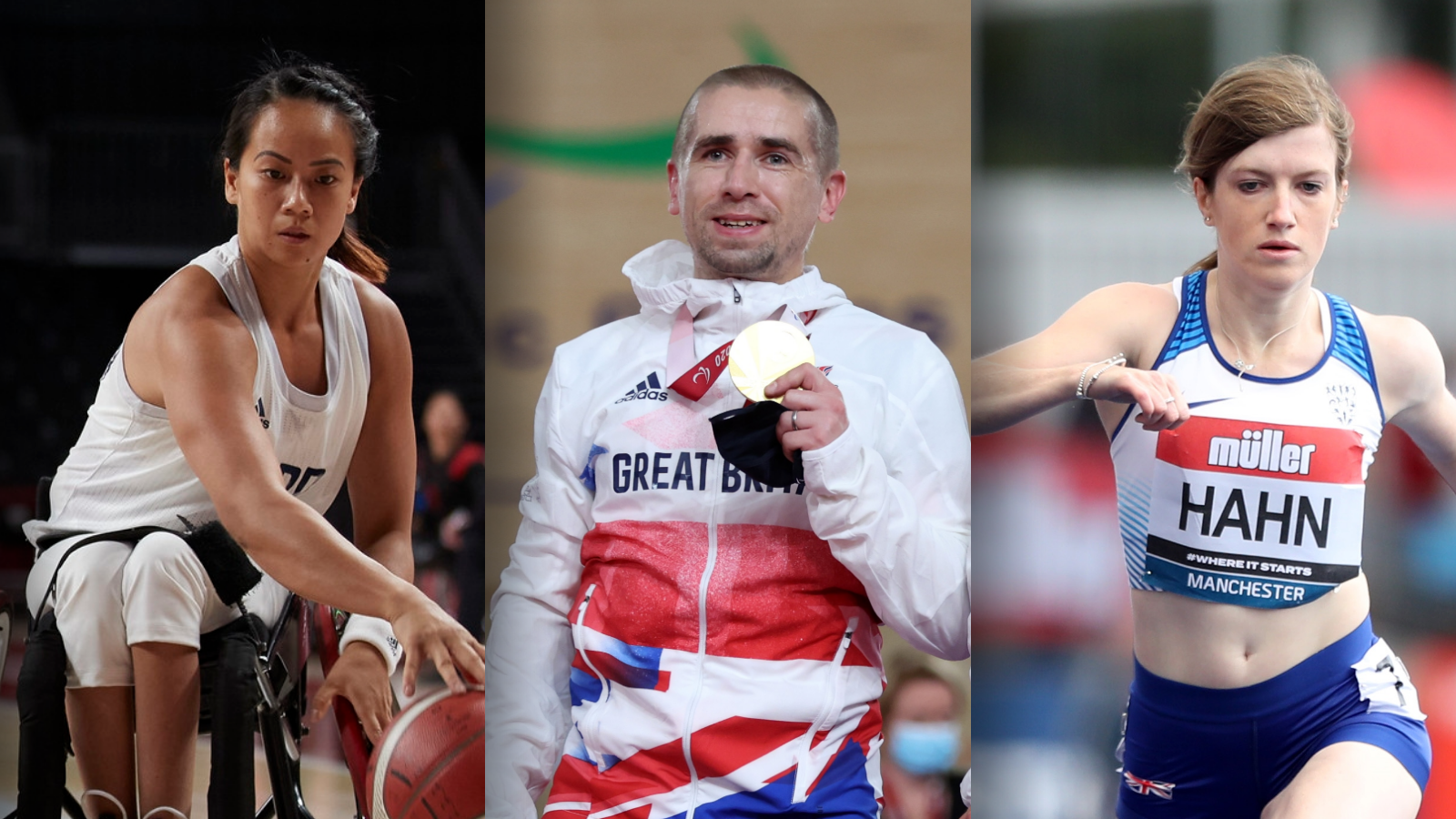Visually-impaired actor 'conflicted' over cosmetic surgery
- Published
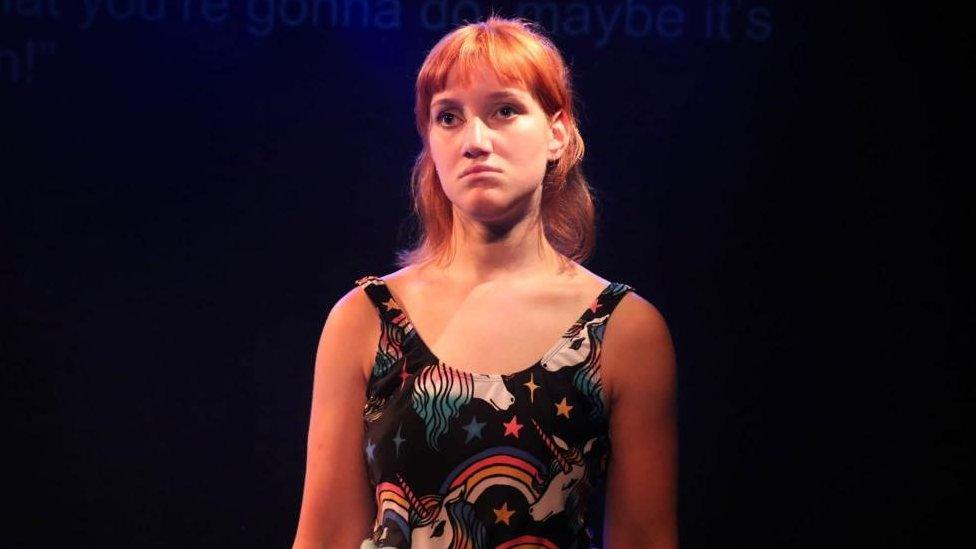
Charlotte Eyres was hit in the eye by a stomp rocket as she demonstrated how to use it
A woman who lost the sight in one eye in a childhood accident says having cosmetic surgery to give herself a more "able appearance" has made her feel "conflicted" at times.
Charlotte Eyres, 22, was eight when she was hit by a stomp rocket at a barbecue.
It left her with a detached retina and a squint as she could no longer see out of her right eye.
She said: "It was a moment in time that just changed everything."
Ms Eyres, from Congresbury, north Somerset, went on to pursue a career in acting, but at the age of 17 decided to have surgery to correct her squint, something she still has mixed feelings about.
She said that following the accident her parents were "terrified".
"They got me to wear squash goggles for a couple of years at school.
"I had to wear them for activities like forest school and sport, even if it was bean-bag throwing."
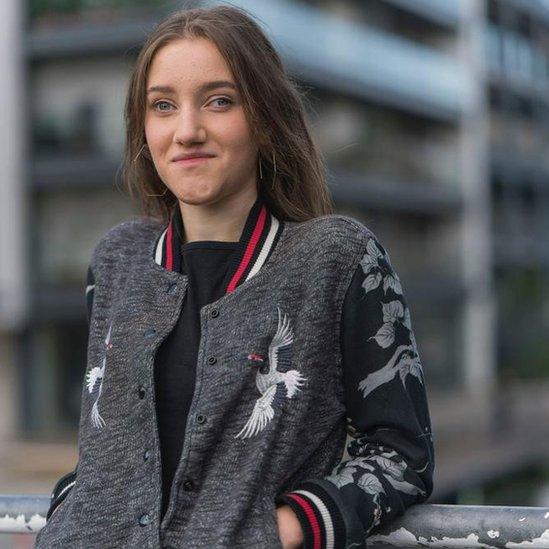
Ms Eyres wrote Rocket Woman for her Drama, Comedy and Satire degree at Goldsmiths College
She managed to find the comedy in those situations and others, like people holding up fingers in front of her eye for her to "prove" she was blind.
After her first operation, she was told her injured eye could not be repaired.
"It was the start of the summer holidays and straight after [the operation] I had to lie down for 50 minutes of every hour for the first week," she said.
She said she "just got on with it" and the hospital appointments felt "normal" because her dad, Jonathan, who has genetic condition Arthrogryposis Multiplex Congenita, which affects his joints and mobility, was in and out of hospital "all the time".
"That summer we sat down for the opening of the Beijing Olympics and dad's got a broken shoulder, I've got a black eye and mum's got wine," she added.
'I just sobbed'
At 14, when she was pursuing her dreams of becoming an actor, Ms Eyres was told by a casting agent that they wouldn't give her a part because of her squint.
"They said it in a protective way, that because of my eye I wouldn't be suited to TV, but maybe in the future there may be a surgery I can have," she said.
"I was 14 and had had a lot of surgery already. I just sobbed...
"Suddenly you're seeing your whole life ahead of you so out of control and it was a moment in time that just changed everything."
She was accepted into the National Youth Theatre aged 16 and said it felt like her eye "didn't affect me".
"But it was always in the back of my mind it could hinder success because I was never seeing anyone on TV with a squint or visual impairment," she added.
However, when she was 17 the issue became "so overbearing" she had squint correction surgery, which tightens the relaxed muscle in the eye.
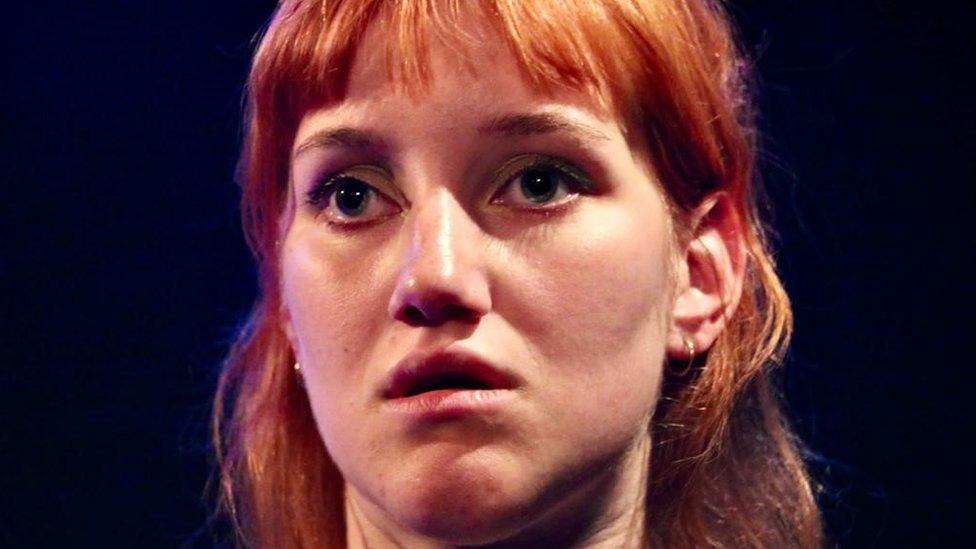
Ms Eyres said disability is so often associated with something really visible or with someone in a wheelchair
"I was auditioning for drama school the next year and I thought it would enhance my chances."
She said she expected to come out of surgery feeling "more confident in myself and more beautiful, which is something to grapple with when your values are that you should be what you are".
"I don't feel shame but beauty standards always get you in the end," she added.
"I remember when the doctor had stitched it up, she said 'can we look at it to make sure you're happy' but it was red and looked disgusting."
The eye stayed bloodshot for six weeks but after it healed, she said it was really strange to look at before and after photos.
"It really affected how I felt when I looked in the mirror."
She chose to dramatise her experience by writing and performing in one-woman comedy Rocket Woman for her degree at Goldsmiths.
The play explores the humour in people's reactions to disability.
'Conflicted'
During her time at university she joined Extant, a performing arts company specifically for visually-impaired artists.
She said she "learned a lot" from meeting more visually-impaired people who have been through similar experiences but have not had corrective surgery.
"Seeing how beautiful they are and how it's not interrupted what I think of others..." has been really important, she said.
"But knowing I've changed the appearance of my eye to fit into more 'able appearance' [can make me] feel conflicted."
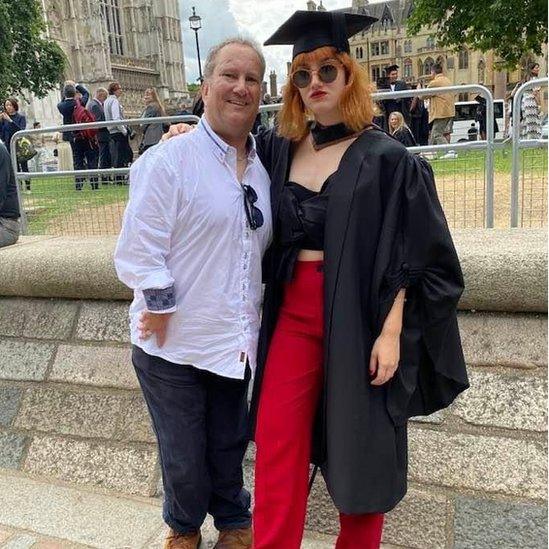
Charlotte said because her dad's life is "significantly affected by his disability" hospital visits already felt "normal"
'Drifting away again'
Ms Eyres said over the last year her eye has started "drifting away again", reminding her how it felt before.
"I'll be talking to someone and I'll start to see one-and-a-half of them, and [then] trying not to bring it up.
"It's frustrating and distracting from what's going on.
"My career is just starting and... just at the point it's getting good, (my eye issue) is coming back."
However, she said she hopes it is less of a worry now as the arts become more inclusive.
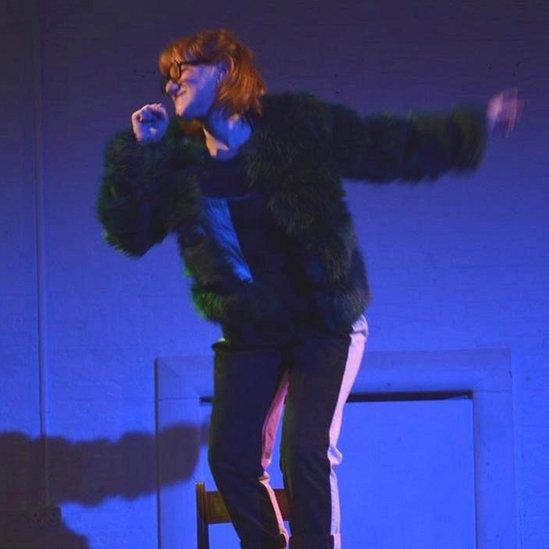
Ms Eyres said one of the hardest things after the accident was missing dance and tennis classes as it was "so much a part of my socialisation"
'Making noise'
Ms Eyres is performing at the Edinburgh Festival Fringe in Tinted, with Extant.
The play is written by Amy Bethan Evans, from Bristol, who Ms Eyres describes as a "real advocate of bringing people into the industry and making noise about disability and inclusion".
It is written as a monologue for Ms Eyres' character Laura and explores bodily autonomy and consent when you are disabled or visually-impaired.
Ms Eyres said between her play Rocket Man and Tinted, "it has all been quite emotional... but it has made me realise what I'd gone through [and] helped put things in perspective".
The festival runs from the 3-28 August.

Follow BBC West on Facebook, external, Twitter, external and Instagram, external. Send your story ideas to: bristol@bbc.co.uk , external
- Published24 June 2022
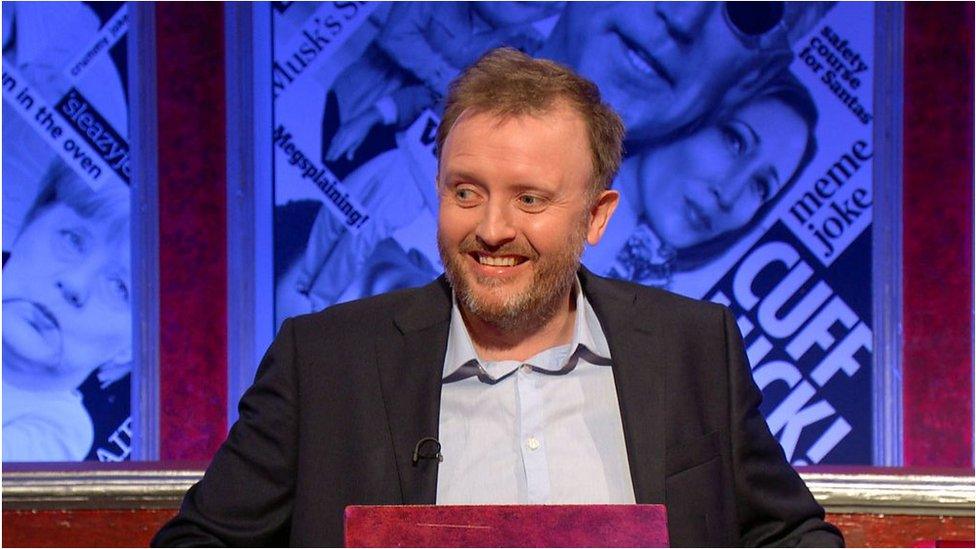
- Published12 June 2022
- Attribution
- Published26 July 2022
